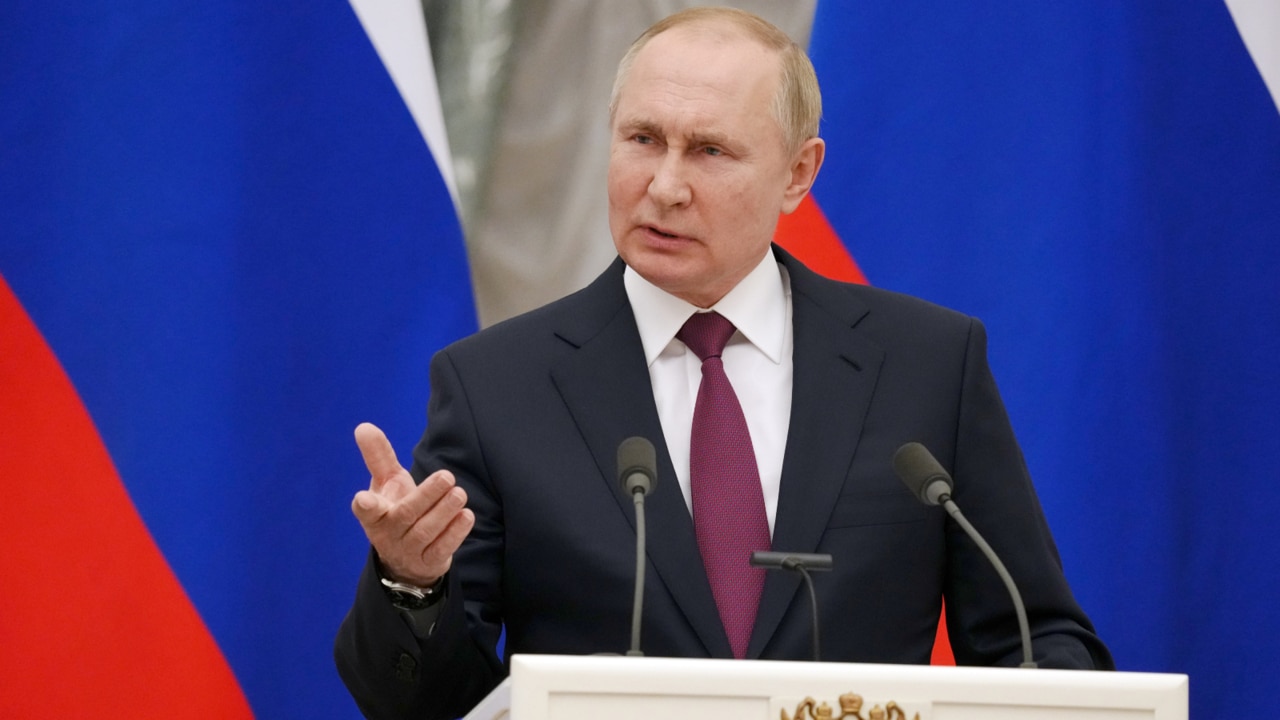The West lacks the political will to help Ukraine defeat Putin’s forces

Despite many differences, there is some analogy between this conflict and the Vietnam War, which ended almost 50 years ago – on April 30, 1975 – when North Vietnamese troops entered what was then the capital of South Vietnam and their tanks smashed through the gates of the presidential palace.
The analogy is that the Americans’ military actions in Vietnam were always confined by political limitations over the three decades they were involved in Indochina. Although at one time they had more than half a million troops in Vietnam, political realities precluded the invasion of North Vietnam or the use of nuclear weapons and ultimately the war was lost.
This is the similarity with Ukraine, where the US and the European Union have provided enormous amounts of money and armaments to the Ukrainian government but no ground troops and no approval to take the war into Russian territory, except for Russian targets related to the new northeastern front. The result has been some kind of stalemate in eastern Ukraine that suggests the likely long-term settlement of the conflict can only be a boundary drawn according to the parties’ approximate positions at the end of hostilities.

There is a debate as to whether the expansion of NATO from the mid-1990s eventually provoked the Russian invasion. It is true that then and after, some long-time American scholars of Russian history, such as George Kennan, warned of the dangers of extending NATO to the borders of Russia. But this debate really only masks the larger question of whether great powers are entitled to exercise a sphere of influence in and around their borders.
The US has, since 1823 when the Monroe Doctrine was proclaimed, considered North and South America to be US spheres of influence where foreign interference or hostile governments would not be tolerated. It is impossible to imagine, for example, that a Canadian government antipathetic to the US could survive for any length of time.
In keeping with this doctrine, the US has spent the past decade trying to remove the regime of President Nicolás Maduro in Venezuela by way of sanctions and the formal recognition of an opposition leader as president. As it happens, the Maduro administration has survived and Washington has appeared resigned in recent times to this survival.
As the great power in Asia, China would certainly not tolerate hostile regimes on or near its borders; and its indifference to international rules and conventions was demonstrated in 1951 when it simply annexed Tibet, and more recently when it removed the political freedoms Hong Kong had enjoyed before becoming part of China.
Russia is not on the same level as the US and China as a superpower but it remains a great power so countries on its borders might be expected to be within its sphere of influence. It may be a hard truth that those countries, including Ukraine, do not have the freedom of policy choices nations in other parts of the world do. It might be thought that one important factor in Russia’s decision to invade was the removal of the then Ukrainian government in 2014 and the substitution of a regime hostile to R

ussia – an exercise achieved with considerable financial assistance from the US.
The debate was hardly advanced by British Foreign Secretary Lord David Cameron, when he said in February: “As congress debates and votes on this funding package for Ukraine, I am going to drop all diplomatic niceties … I do not want us to show the weakness displayed against Hitler in the 1930s.” A supposed analogy with Germany in the 1930s is a timeless political reference and was even used in relation to Vietnam but it has never really been useful. The Germans were prepared to occupy a continent from Moscow to the English Channel and there has been no suggestion since that that kind of threat could be repeated.
None of this is to justify the Russian invasion of Ukraine, but the question now is how can the conflict be settled. In contrast to the demise of South Vietnam, the US and EU can probably ensure Ukraine does not lose the war. But, given the political limitations on the assistance that can be provided to Ukraine, it is very doubtful the present position of the two sides can be significantly altered. In those circumstances Ukraine’s allies might be better engaged in trying to promote a settlement of the conflict rather than encouraging it.
Michael Sexton’s is the author of War for the Asking: How Australia invited itself to Vietnam.





Even as a new front opens up in the northeast of Ukraine, the conflict with Russia remains in many ways, and for most of the world, the forgotten war.